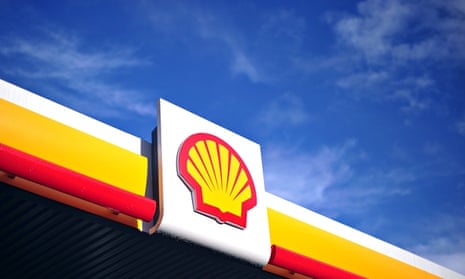The Church of England has challenged BP and Shell, two of the world’s biggest oil companies, to take responsibility for their carbon footprints and limit their contribution to global warming.
The church will submit a shareholder resolution calling on the energy companies, which are two of the top five investments in its £9bn investment fund, to take action to “adapt their businesses over the long term for a low carbon economy”.
The intervention comes as ministers from nearly 200 countries prepare to meet next week in Lima, Peru, for UN climate talks to lay the draft text for a carbon-cutting deal next year, and as the church itself comes under pressure to relinquish its investments in fossil fuels.
Edward Mason, the head of responsible investment at the Church Commissioners for England, said in a blogpost that, as shareholders, the church had a vital opportunity to influence companies’ climate change strategy.
“We have chosen to file shareholder resolutions at BP and Shell because they have the biggest carbon footprints of all the companies listed on the London Stock Exchange, and they are yet to achieve A ratings (they are both rated B) [on the Carbon Disclosure Project’s ranking].
“Of course oil and gas companies have a particular responsibility because the fuels they produce contribute to climate change when they are burned,” he wrote.
He said the resolutions were supportive, but would stretch the companies. “The idea is to give all of the shareholders of both companies the opportunity to signal that, like us, they want to see BP and Shell adapt their businesses over the long term for a low carbon economy. We want the companies to be sustainably profitable.”
The church has come under pressure from campaigners, including the high-profile US author and activist Bill McKibben, to divest from fossil fuels. It has about £101m invested in Shell and £91.9m in BP. McKibben told the Guardian last month that the CoE was dragging its heels on divestment, even though it has been encouraged by the retired Anglican bishop Desmond Tutu.
“Their response so far has been to say that they’ll study it until late 2015, which means they will have examined it for a period slightly longer than Jesus’s public ministry. It’s not exactly what Desmond Tutu had in mind,” McKibben said.
In response to the church, a BP spokesman said: “We have had constructive discussions with CCLA [church fund managers] and are aware that they intend to file a resolution for our AGM in April 2015. We will carefully consider it and respond appropriately before the meeting.”
Shell said it was not commenting on the church’s move, but in an article in the Times last month, the company’s CEO, Ben van Beurden, said that rising energy demand meant a “pragmatic” look at climate change meant recognising the world would need oil and gas into the second half of this century and beyond.
He added: “As chief executive of a company that believes in the value of innovation, I also know that, collectively, we must give ourselves every chance of allowing technology to help [on climate change].
“Innovation is no silver bullet but, as we navigate what will be a decades-long transition away from a fossil fuels-dependent energy system, new technologies can play a crucial and transformative role. One example is CCS [carbon capture and storage] – capturing carbon dioxide from man-made sources such as power stations and storing it safely deep underground.”
The resolution to be submitted by the church calls for BP and Shell to “direct that routine annual reporting from 2016 includes further information about: ongoing operational emissions management; asset portfolio resilience to the International Energy Agency’s (IEA’s) scenarios; low-carbon energy research and development (R&D) and investment strategies; relevant strategic key performance indicators (KPIs) and executive incentives; and public policy positions relating to climate change.”
Shareholders will vote on the resolutions next spring.

Comments (…)
Sign in or create your Guardian account to join the discussion